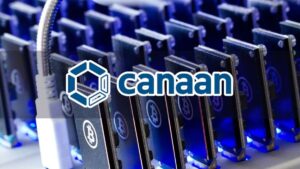TL;DR:
- CleanSpark hires Jeffrey Thomas and announces its new focus on AI data centers, abandoning its old mining-only model.
- It will use its portfolio of energy, land, and electrical connections to build “giga-campuses” in Georgia and meet AI and cloud demand.
- Shares rise more than 10% on the announcement, as the mining sector recognizes that high-performance computing may be worth more than mining bitcoins.
CleanSpark, Inc., until now known primarily for its role as a bitcoin miner, has surprised the market with a strategic shift toward artificial intelligence infrastructure and cloud data centers. The news was accompanied by the hiring of Jeffrey Thomas as senior vice president of AI Data Centers, marking a new phase for the company, which is listed on Nasdaq under the symbol CLSK.
A new direction for the company
CleanSpark announced that it will leverage its energy, land, and data center assets to meet the growing demand for AI computing capacity. Thomas, who previously led Humain’s AI data center initiative in Saudi Arabia, will be tasked with developing “giga-campuses” in strategic locations, including Georgia, near Atlanta, where energy and real estate agreements are already in place.

CleanSpark CEO Matt Schultz noted that this transition represents an evolution of the business model from pure bitcoin mining to a broader digital infrastructure provider that includes AI and cloud customers. The company is also building on its expertise in rapid development, site ownership, and direct connection to the power grid.
The market reaction was immediate: CleanSpark’s shares soared more than 10% following the announcement, reflecting investor optimism about this diversification.
This approach comes at a time when other firms in the mining sector are also pivoting toward high-end computing, recognizing that the value of energy and computing capacity has far exceeded that of simple cryptocurrency mining. CleanSpark claims that this strategy may represent a path to more stable revenue streams that are independent of the volatile price of bitcoin.
However, the change raises questions about how the company will balance its legacy as a cryptocurrency miner with the demands of corporate AI and cloud customers, a distinct and potentially more competitive segment. While the infrastructure is there, execution and contract acquisition will be key to translating this transition into real success.










